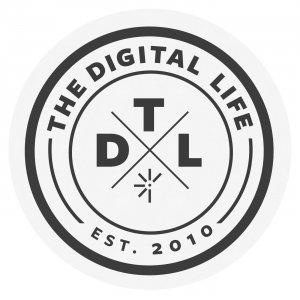The Digital Life

Automating Work
Jon: Welcome to episode 140 of The Digital Life. A show about our adventures in the world of design and technology. I'm your host Jon Follett and with me is founder and co-host, Dirk Knemeyer.
Dirk: Hey dee ho, Jon.
Jon: Hey dee ho, Dirk. Another week, another topic. This one is something that I'm very interested in, which is the future of work. In particular, the automation of work.
Dirk: Dun dun dun.
Jon: Yeah. That's what's coming for all of us. You can imagine robots, and artificial intelligence, and a series of computers, and software sort of taking over any number of jobs. There was a very interesting McKinsey Report at least, it was released in November, The Interim Finding for released on the four fundamentals of workplace automation, and they had some very interesting things to say, which were unexpected to me.
Essentially, there's technologies that can automate roughly fifty percent of work right now. Work activities using RT demonstrated technology. This could range from things like picking objects in a warehouse, Amazon's got the Kiva Robotics, which is a Boston area firm. Basically automated the heck out of warehouse picking. Instead of someone going and looking for an item in a warehouse, you've got robot system that basically brings it to the pecker, four times as fast. We've all seen the numerous ads for IBM Watson. They've got all sorts of celebrities, from Serena Williams to who knows, appearing with Watson, and Watson's a little self deprecating so it's not to scare the heck out of you. IBM's really pushing how much Watson can be helpful.
All this automation is coming. In fact, in a lot of ways, it's already here. If you've find that fifty percent of your work activities can be automated, there is that other half of the work activities, which necessarily still require a human being. What the McKinsey report more or less boiled that down too was that everybody's job is going to change because we're going to have to take in automation into whatever occupations that we currently have. This doesn't just apply to what you'd think on the frontline workers. It just applies to folks like that. It applies to knowledge, workers. It applies to CEOs. There's chunks of automation that can be found in the activities of each of those groups.
I think the future of work if you believe McKinsey, and I enjoy their analysis, and I'm looking forward to this final report. I have a feeling that we're all going to be dealing with a bit of automation in our future. Dirk, what was your impression of the McKinsey report?
Dirk: You're right. There's going to be automation all around us in the future, but I thought the McKinsey report sucked.
Jon: Oh, no.
Dirk: I thought it was terrible. Let me start with they did some interesting things. They broke down automation on the basis of activities, as you pointed out, and that's important because they said, "What are the things that automation can take care of, and they rolled up all their tools form that," which is really nice. What they didn't do is bring that down to the impact it will actually have with workers and people in the workplace.
What I mean by that is, they said, "Yeah, for these type of people, thirty percent of their tasks will be able to be automated." OK, that's great, but if you're one of those type of people, and thirty percent of your tasks are automated, what does that mean? Does that mean there will be thirty percent less jobs? Does that mean that you will shift to be doing other things, but still have a job? It wasn't taking that next level of analysis.
I thought that was really poor because it gave statistics with very little context, and didn't give us the information we really want, which is which jobs will be lost? Which jobs will be at risk, and or for my job, how will my job change as a consequence of N percent of my activities being automated and taken from being something that I can do?






 Visit Podcast Website
Visit Podcast Website RSS Podcast Feed
RSS Podcast Feed Subscribe
Subscribe
 Add to MyCast
Add to MyCast